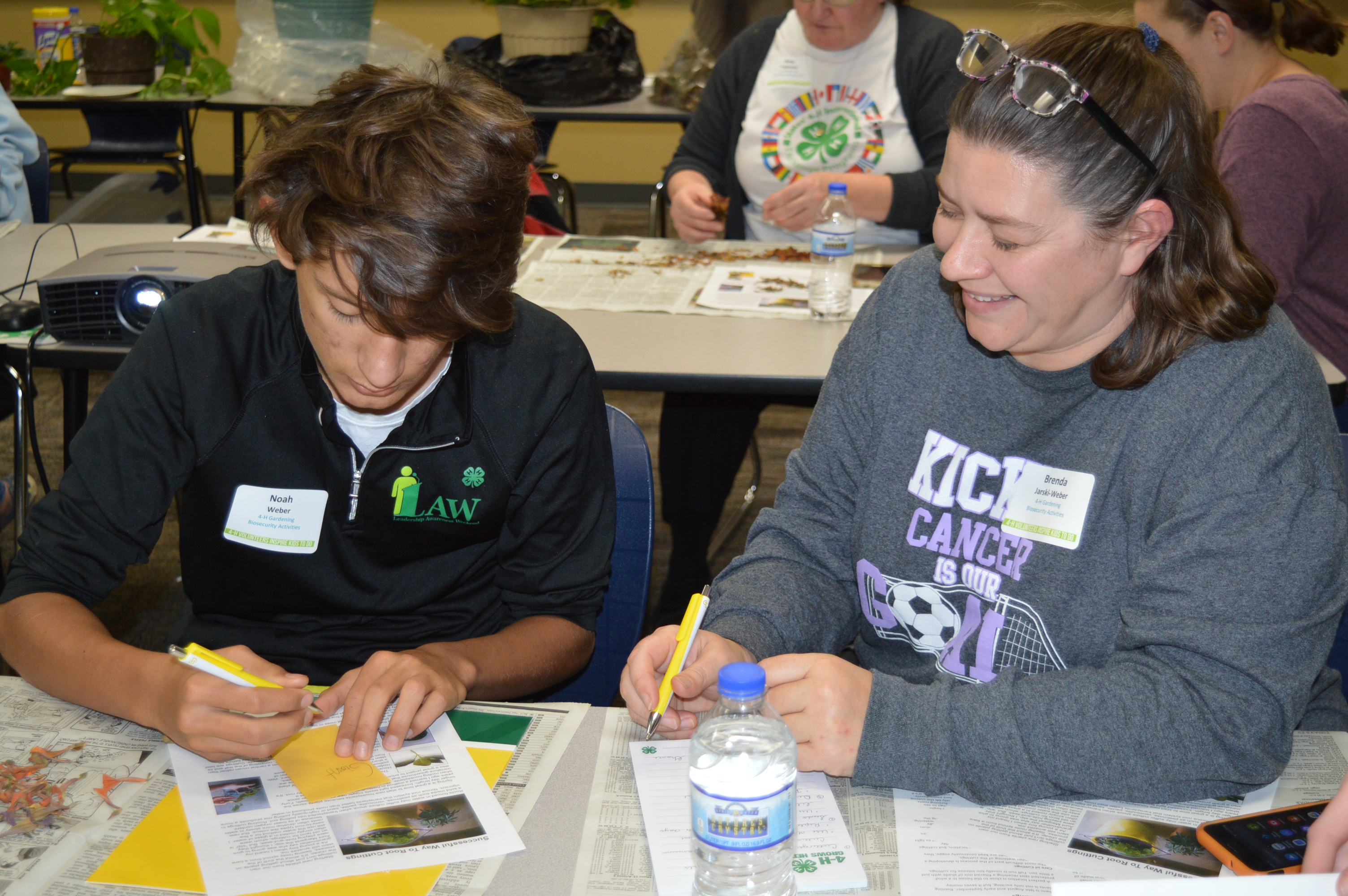
Noah Weber, a 4-H youth volunteer, and Brenda Weber, a 4-H adult volunteer, both of Stutsman County, participate in 4-H volunteer project training in Finley, N.D. (NDSU photo)
FARGO, N.D. (NDSU Extension) – During National Volunteer Week, April 19-26, NDSU Extension is sharing results of a study that documents the impact of 4-H volunteers.
The North Central Region 4-H Volunteer Impact Study, conducted across a 12-state region, aimed to understand and document the specific value and impact that 4-H volunteers have on the 4-H youth development program and in communities.
“We have always known the value of 4-H volunteers, but through this study, we learned their impact goes beyond the scope of the program and leads to changes in communities,” says Rachelle Vettern, NDSU Extension leadership and 4-H volunteer development specialist. “Entire communities are stronger because of the work of 4-H volunteers.”
Brad Cogdill, NDSU Extension Center for 4-H Youth Development chair, says, “Extension volunteers are at work in nearly every community in North Dakota, and their communities need them. This study reaffirms that the private growth of an individual volunteer transforms into public benefit and stronger communities.”
Brenda Weber, a Stutsman County 4-H volunteer, says, “On a personal level, I have learned valuable leadership skills that extend beyond 4-H, but seeing the kids learn a new skill or take on a leadership role is my favorite part of being a 4-H volunteer.”
The survey research resulted in three key findings.
4-H Volunteers Gain Personal Skills
Volunteers come into the 4-H program hoping to support youth and make a difference, but they also gain skills in teaching, leadership and communication. These skills transfer to other environments in which volunteers work and live.
Survey responses indicated:
95% built new relationships with youth
87% gained skills that were useful in other settings
82% increased their confidence as a leader
NDSU Extension Benefits Significantly From 4-H Volunteers
North Dakota’s 4-H volunteers give seven hours per month to the 4-H program in their communities. Annually, that time is worth $2,165 per volunteer.
Survey responses reported:
89% made connections in the community on behalf of 4-H
85% spoke about the value of the 4-H program
83% recruited new youth to 4-H
70% recruited and helped train new 4-H volunteers
Communities Are Stronger Because of 4-H Volunteers
4-H volunteers network with other volunteers, helping communities and organizations stay better connected. Volunteers donate their time and service to community gardens, retirement homes, cleanup projects, fairs and other civic engagement endeavors.
93% said volunteering with 4-H makes communities stronger
91% said volunteering with 4-H contributes to better connected communities
87% said volunteering with 4-H improves the health of communities
87% said volunteering with 4-H increases civic engagement
To learn more about the survey results, see https:www.ndsu.edu/4h/volunteers_leaders/4_h_volunteer_impact_study.
“Especially during National Volunteer Week, NDSU Extension thanks all our 4-H youth and adult volunteers for their many contributions to the 4-H program and to their communities,” Vettern says.
